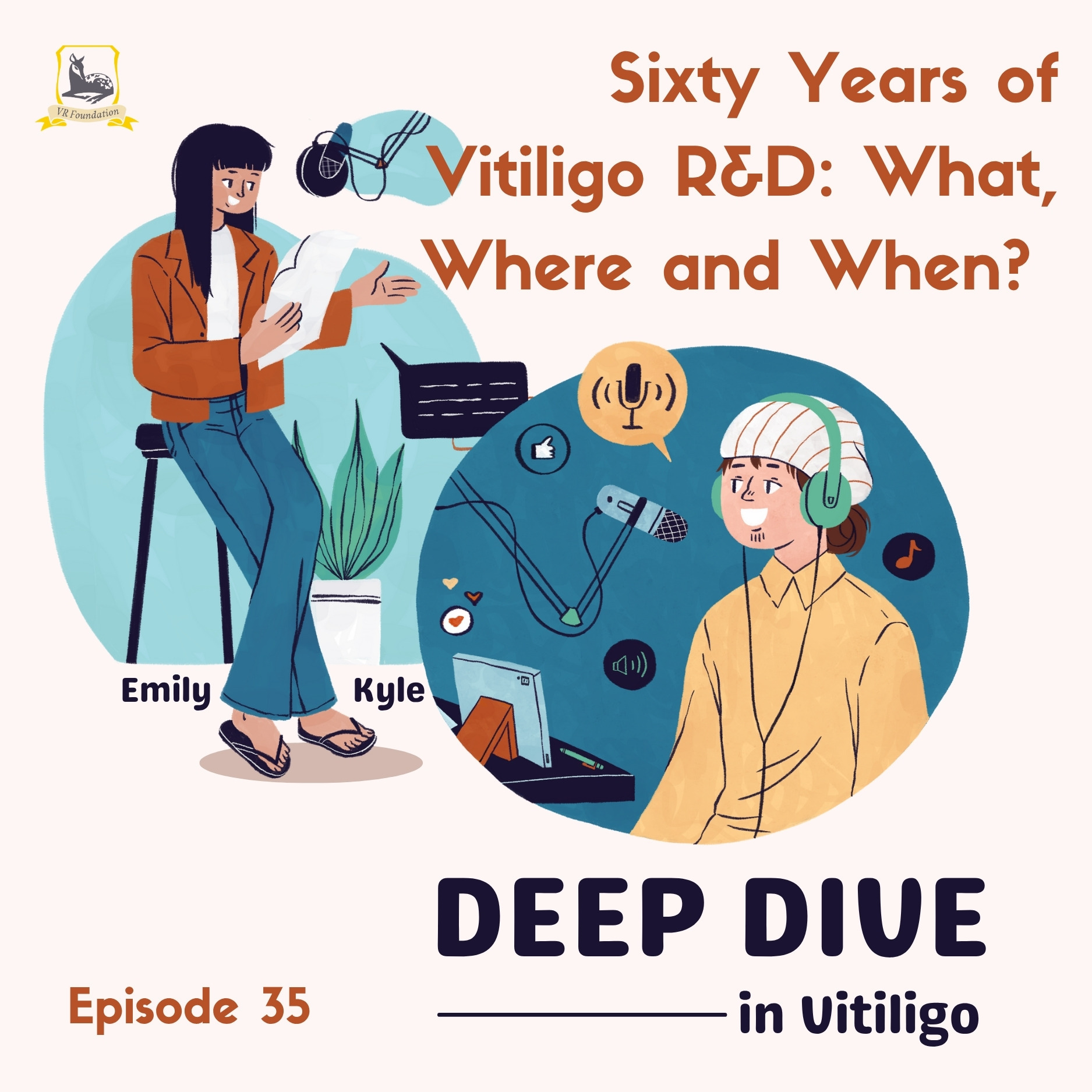Our work is entirely funded by private donations – we receive no money from government. Your money will help us continue funding research into vitiligo and supporting people affected by the condition.
Podcast
Sixty Years Of Vitiligo Research — Where Are We Now and What Comes Next? (Ep. 35)
For decades, vitiligo was dismissed as “just cosmetic” — but today, it’s driving some of the most exciting breakthroughs in dermatology.
In this episode, we break down what’s changing, what’s coming, and why there’s finally real hope on the horizon.
From its overlooked beginnings to a market now worth billions, vitiligo is undergoing a scientific renaissance — thanks in no small part to relentless patient advocacy and the rising influence of World Vitiligo Day.
Whether you’re newly diagnosed, supporting someone with vitiligo, or just curious about what’s next — this episode gives you the full picture, in plain language.
Continue reading:
- Could These 3 Proteins Be the Key to Beating Vitiligo?
- Vitiligo Drug Pipeline Analysis and Market Insights
- Biologic Therapies for Vitiligo: A New Era of Hope


FAQOther Questions
- Shall I take vitamin D for my vitiligo?
Vitamin D plays a central role in the prevention of different inflammatory and chronic diseases. Consuming 1,000–4,000 IU (25–100 mcg) of vitamin D3 daily should be ideal for mo...
- Are there any famous people with vitiligo?
Many celebrities have dealt with vitiligo while remaining in the public eye, maintaining a positive outlook, and having a successful career. Here are a few courageous famous peo...
- Can Ginkgo Biloba help with vitiligo?
Ginkgo Biloba offers a promising, simple, and relatively affordable option for managing vitiligo. Known for its anti-inflammatory, immunomodulatory, and antioxidant properties, ...
Though it is not always easy to treat vitiligo, there is much to be gained by clearly understanding the diagnosis, the future implications, treatment options and their outcomes.
Many people deal with vitiligo while remaining in the public eye, maintaining a positive outlook, and having a successful career.
Copyright (C) Bodolóczki JúliaBy taking a little time to fill in the anonymous questionnaire, you can help researchers better understand and fight vitiligo.